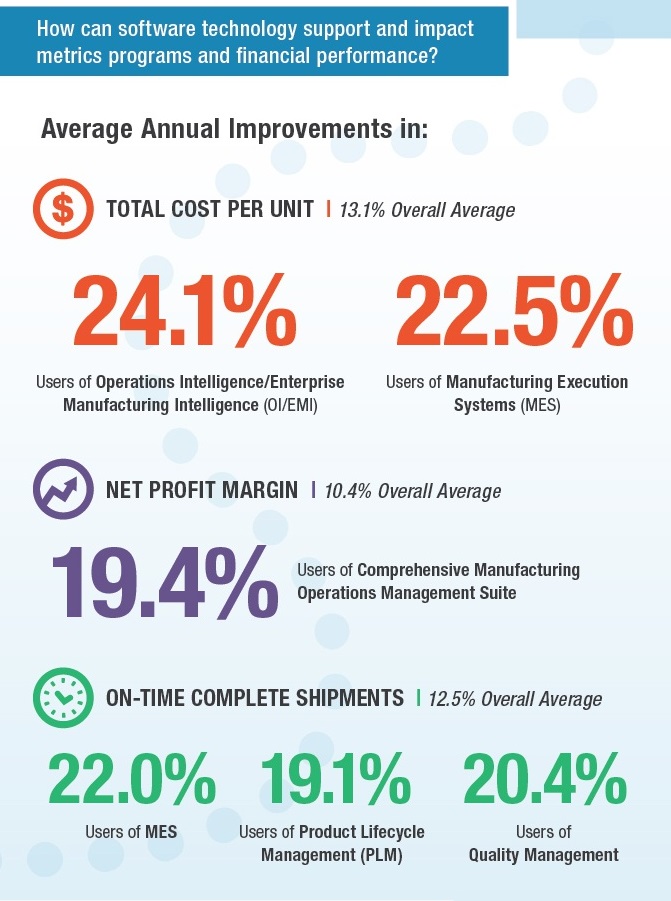Contact us at +32 (0) 47 572 56 84 or
info@reditechautomation.com
Measure and improve your production process

However, effectively measuring, analysing, and improving upon those manufacturing metrics is more complicated than it may seem. The correlations between operational and specific business metrics are not always obvious, and combinations of metrics are often necessary to gain a clear picture of a larger overall business goal or objective.
Currently, smart devices produce thousands of data points every minute.
Manufacturers who can turn these data points into actionable information can
optimize productivity and better handle volatile and unpredictable market
conditions. But with so much data coming in, many manufacturers wonder what to
track and where to even begin.
So how do you ensure that your time and resources are focused on the right things?
Currently, ERP software is the most commonly used software for capturing data, with 85 percent of manufacturers already using or planning an ERP implementation in the next year. ERP systems are crucial for holding master product and customer data and providing insight across all manufacturing operations. However, fewer manufacturers have implemented the Manufacturing Execution Systems (MES), a manufacturing intelligence and quality management software that can provide real-time data to help machine-level operators view performance information, schedule production, and make proactive decisions to keep plants running efficiently. Monitoring the nitty-gritty details on the production floor can have a significant impact on uptime, availability and quality goals.
Coupling the Manufacturing Execution System, which goes beyond the ERP-level,
with your ERP software will enable you to evaluate your production process,
pointing out where and what can be improved. Therefore, implementing MES
software in your organisation will not only improve control over your
production, but will also help you save money!
If you are interested in the benefits of a MES system, or if you want to find out how and where your production process can be improved, please contact us!
Recent articles
- Get a taste of Smart Manufacturing! by Thijs Van Hoorick posted at 21/12
- Smart Terminal - by Reditech & iOnLogistics by Thijs Van Hoorick posted at 14/10
- Industry 4.0 at WOTS by Thijs Van Hoorick posted at 23/09

